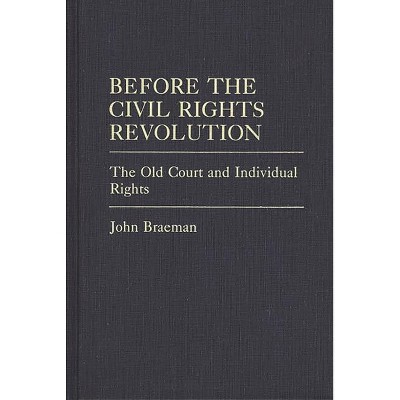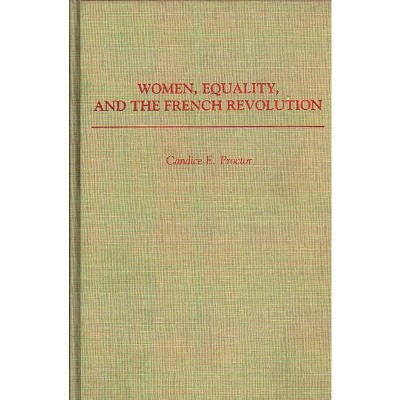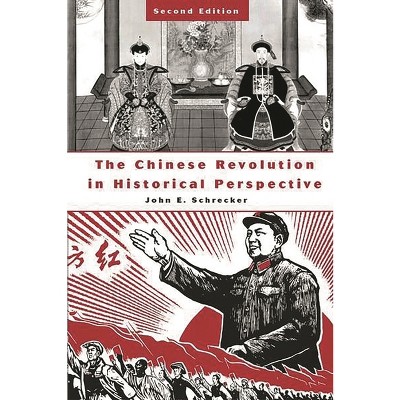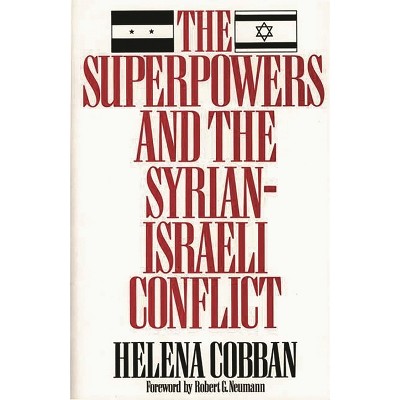Sponsored

Superpowers and Revolution - by Jonathan Adelman (Hardcover)
$95.00
In Stock
Eligible for registries and wish lists
Sponsored
About this item
Highlights
- About the Author: elman /f Jonathan /i R. /r ed.
- 320 Pages
- Freedom + Security / Law Enforcement, General
Description
Review Quotes
?This book attempts to discern the similarities of policy of the US and the Soviet Union when they intervene politically or indirectly during potentially revolutionary situations in other countries. The major case studies for the US are China (1945 to 1949), Vietnam (1961 to 1965), Guatemala (1954), and Chile (1970 to 1973); for the Soviet Union, Yugoslavia (1945), Hungary (1965), Poland (1956 and 1980 to 1981), and Afghanistan (1979). Although most of the contributors are political scientists, they rank historical memories consistently among the most important reasons for intervention. Other reasons are: international context, view of the enemy', cost-benefit calculations, and shifting bureaucratic coalitions. Although cultural arrogance played a larger role in US interventions than Soviet, both superpowers lacked detailed knowledge of the political structures and personalities of the countries in which they intervened. The US and the Soviet Union have historically overestimated and distorted the threat to themselves of the revolutionary regimes, a position that increased the hostility of the object countries.... Upper-division and graduate collections.?-Choice
?When states which are deemed by one or both superpowers to be significant in the geopolitical balance of power erupt into revolution or local war, Washington and Moscow have decisions to make: to weigh the risks, costs and advantages of this course or that; to decide on action or inaction; to try to act together to contain the dangers or separately to exploit them. The contributors to this volume look into the problems of revolution and intervention by considering specific instances where the Soviet Union (in the cases of Yugoslavia, Hungary, Czechoslovakia, Poland and Afghanistan) or the United States (in China, Vietnam, Guatemala, Chile and Iran) had such decisions to make. These studies are, for the most part, carefully and thoughtfully done, without great new revelations and with more sureness of touch, for obvious reasons, on the American than on the Soviet side.?-Foreign Affairs
"When states which are deemed by one or both superpowers to be significant in the geopolitical balance of power erupt into revolution or local war, Washington and Moscow have decisions to make: to weigh the risks, costs and advantages of this course or that; to decide on action or inaction; to try to act together to contain the dangers or separately to exploit them. The contributors to this volume look into the problems of revolution and intervention by considering specific instances where the Soviet Union (in the cases of Yugoslavia, Hungary, Czechoslovakia, Poland and Afghanistan) or the United States (in China, Vietnam, Guatemala, Chile and Iran) had such decisions to make. These studies are, for the most part, carefully and thoughtfully done, without great new revelations and with more sureness of touch, for obvious reasons, on the American than on the Soviet side."-Foreign Affairs
"This book attempts to discern the similarities of policy of the US and the Soviet Union when they intervene politically or indirectly during potentially revolutionary situations in other countries. The major case studies for the US are China (1945 to 1949), Vietnam (1961 to 1965), Guatemala (1954), and Chile (1970 to 1973); for the Soviet Union, Yugoslavia (1945), Hungary (1965), Poland (1956 and 1980 to 1981), and Afghanistan (1979). Although most of the contributors are political scientists, they rank historical memories consistently among the most important reasons for intervention. Other reasons are: international context, view of the enemy', cost-benefit calculations, and shifting bureaucratic coalitions. Although cultural arrogance played a larger role in US interventions than Soviet, both superpowers lacked detailed knowledge of the political structures and personalities of the countries in which they intervened. The US and the Soviet Union have historically overestimated and distorted the threat to themselves of the revolutionary regimes, a position that increased the hostility of the object countries.... Upper-division and graduate collections."-Choice
About the Author
elman /f Jonathan /i R. /r ed.
Dimensions (Overall): 9.21 Inches (H) x 6.14 Inches (W) x .75 Inches (D)
Weight: 1.38 Pounds
Suggested Age: 22 Years and Up
Number of Pages: 320
Genre: Freedom + Security / Law Enforcement
Sub-Genre: General
Publisher: Praeger
Format: Hardcover
Author: Jonathan Adelman
Language: English
Street Date: October 8, 1986
TCIN: 1005059431
UPC: 9780275921668
Item Number (DPCI): 247-30-1614
Origin: Made in the USA or Imported
If the item details aren’t accurate or complete, we want to know about it.
Shipping details
Estimated ship dimensions: 0.75 inches length x 6.14 inches width x 9.21 inches height
Estimated ship weight: 1.38 pounds
We regret that this item cannot be shipped to PO Boxes.
This item cannot be shipped to the following locations: American Samoa (see also separate entry under AS), Guam (see also separate entry under GU), Northern Mariana Islands, Puerto Rico (see also separate entry under PR), United States Minor Outlying Islands, Virgin Islands, U.S., APO/FPO
Return details
This item can be returned to any Target store or Target.com.
This item must be returned within 90 days of the date it was purchased in store, shipped, delivered by a Shipt shopper, or made ready for pickup.
See the return policy for complete information.
Trending Non-Fiction


$18.28
was $19.58 New lower price
4.7 out of 5 stars with 17 ratings
















